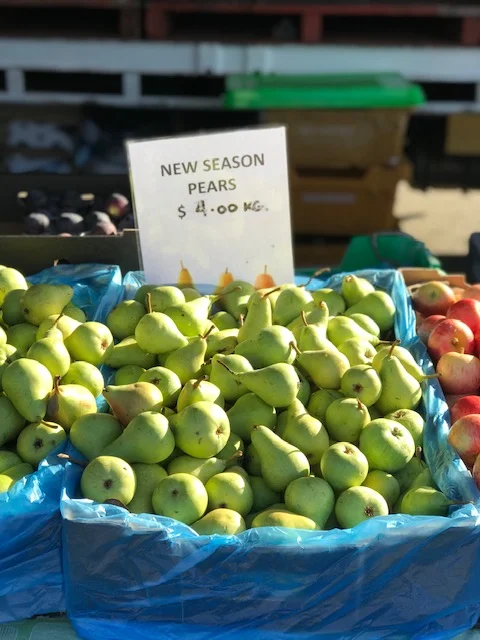Why “Organic” Matters To You
Most of my life I wasn’t really aware what organic produce and products truly were. I knew organic meant produced differently but mainly I thought it just meant more expensive and possibly pretentious. Since studying nutrition I’ve learnt it really isn’t the case. It is well worth being aware how non-organic produce can affect you and ways to incorporate them where you can.
Organic produce is labelled "certified organic" when it has been grown, raised, harvested and packaged without the use of pesticides, insecticides, growth hormones and antibiotics. In terms of the planet’s history, the use of synthetic pesticides is very new. These chemicals are usually trialed for only a 6-month period before being used for consumption. There is no way of knowing what daily exposure of this does inside our bodies over a lifetime. What is now known as “organic” used to be known just as food. Only in the last 70 years increasing use of synthetic pesticides has coincided with the increase of allergies, autoimmune diseases and all kinds of gut dysbiosis. What can be labelled safe for human consumption may be true but can be very damaging for the billions of live bacteria living in our gut (the microbiome). This outsourced help create vitamins, help protect against pathogens, eliminate toxins, serve as an internal pharmacy by creating natural antibiotics, balance hormone levels, and help you digest food. For example, when you eat a vegetable your body breaks down the carbohydrates to glucose and the leftovers (indigestible fibre) is then consumed by bacteria like a vacuum cleaner feeding on the fibres you can’t digest. Harmful chemicals sprayed on conventional food can express themselves once ingested and play out in our gut.
Pesticides are fat-soluble and typically need to be detoxified by the liver before they can be excreted. If your liver is already overloaded instead of being eliminated, pesticides have the potential to be stored in fatty tissue. When the liver can’t keep up with the incoming load it can also have a big impact on energy and subsequently outwards appearance.
Other than being heavily sprayed the big problem with buying produce from supermarkets is that you have no idea about the farming practices, where the produce has come from or the length of time it has spent in transportation and storage, losing nutritional value by the day (or weeks/months). Since googling ‘farmers market around me’ I found there was a weekly farmers market 10 minutes from my house and have fallen in love with them. I know where my produce has come from, the farmers who grew what I’m eating and you can taste the difference. A beautiful synchronicity comes from eating fruits and vegetables grown and harvested in the same season you are experiencing. Buying organic means you don’t have to over wash your produce, intentionally keeping some of the local dirt and ingesting it, positively feeding your microbiome. Farmers markets are extremely cost effective compared to supermarkets per unit and prices are cheaper for plentiful grown foods of the week. Organic meats, eggs and dairy are also sold at farmers markets. Industrialised farming means animals are fed chemical sprayed feed and giving antibiotics to minimise widespread sickness meaning humans ingest these when consuming animal products.
Prioritising the organic fruits and vegetables you buy means eating organic can be more easily achieved. We eat a banana after being peeled for example. It may have been sprayed but there is likely less chemical residue in the flesh. With blueberries though we usually eat the whole fruit and the skin is very porous.
These foods are known as the "Dirty Dozen" and in particular, you should try to buy organic versions of these whenever you can:
Strawberries, spinach, kale, nectarines, apples, grapes, peaches, cherries, pears, tomatoes, celery and potatoes
The Clean list includes produce that is least likely to be contaminated by pesticides. Most have a protective skin (none of the fruit on the Clean 2018 list tested positive for more than four pesticides) which include:
Avocados, sweet corn, pineapples, frozen sweet peas, onions, papayas, eggplants, asparagus, kiwis and cabbages.
https://www.ewg.org/foodnews/summary.php
Eating non-organic produce is still better than not eating fruits or vegetables at all. If you can’t find or afford organic foods then washing in 1 cup of apple cider vinegar mixed into 1-2 litres of clean water is a great place to start. Consuming fermented foods such as sauerkraut can also help break down pesticides and detoxify.








